'Dahmer' actor Richard Jenkins talks people's true crime obsession
Richard Jenkins discussed people's obsession with true crime, saying he understands people's fascination with it, and says he loves Ryan Murphy who he worked with in Netflix's "Dahmer."
Oba Chandler, the Florida man convicted on three murder charges in the death of Joan Rogers and her two teenage daughters, denied any wrongdoing until the day he was executed.
The June 1989 killings of Rogers and her daughters, 17-year-old Michelle and 14-year-old Christie, went unsolved for three years after their bodies were found in Tampa Bay with yellow polypropylene rope tying them to concrete blocks by their necks, per the Tampa Bay Times.
But finally, Tampa police officers were able to identify a suspect using one of the few clues he left behind: his handwriting.
The exhaustive search for Chandler is detailed on this week's Fox True Crime podcast.
FORMER FBI AGENT RECALLS THE ONE SERIAL KILLER WHO LEFT HER ‘SHAKEN’: ‘HE JUST DIDN’T SEEM HUMAN’
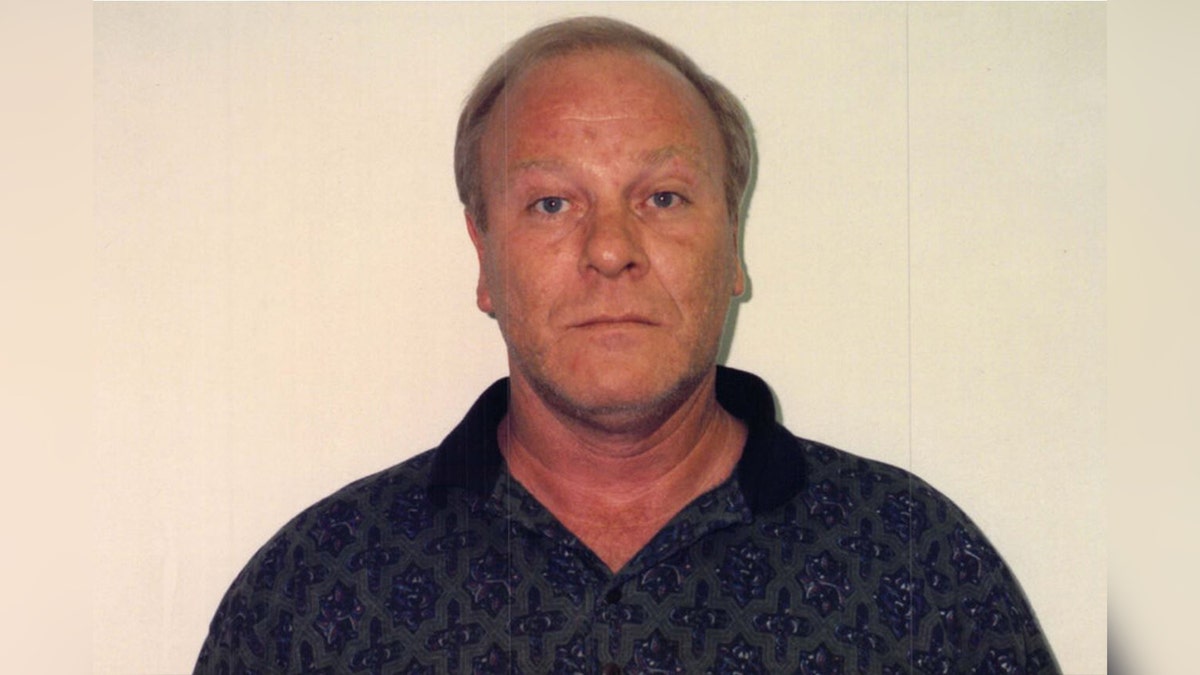
Oba Chandler, 46 at the time, was charged with the murders of Joan, Christie and Michelle Rogers after a woman who had contracted him to build aluminum enclosures recognized his handwriting from a police billboard. (Fox 13 Tampa)
Rogers, 36, and her two daughters all had their mouths taped shut and were nude from the waist down when they were discovered on the morning of June 4, 1989. Autopsies indicated that they had died from asphyxiation, but it was unclear whether they had been drowned or strangled with the ropes around their necks.
Their bodies had been submerged for 50 to 60 hours, coroners estimated, making it impossible to determine whether they had been raped.
They went unidentified for four days until a Days Inn housekeeper who read news articles on the gruesome discovery contacted police, telling them that Rogers trio had never returned to their room at the hotel where she worked.
Detectives would learn that Rogers and her daughters were vacationing in Florida while Hal Rogers, Joan's husband, stayed behind at their dairy farm in Willshire, Ohio.
REMAINS OF MISSING VIRGINIA BOY, 5, IDENTIFIED AS POLICE PURSUE NEW CHARGES

Joan Rogers, left, 17-year-old Michelle Rogers, center, and 14-year-old Christie Rogers, right, were found with their mouths taped shut and tied to cinder blocks in Tampa Bay on June 4, 1989. (Fox 13 Tampa)
Also four days later, police located Rogers' abandoned car at a boat ramp parking lot two miles from the Days Inn.
Inside were a tourist brochure and a handwritten note on a slip of Days Inn paper with directions to the boat ramp where the car was found that included a reference to a blue and white boat.
Detectives released information about the watercraft, per the Tampa Bay Times – although tips poured in, none of them led to any advancements in the case.
Hal Rogers was quickly cleared of suspicion after an emotional interview, per reporting by Oxygen.com. He told police that Rogers' brother, John, had sexually abused his eldest daughter, Michelle. The girl had never reported the incident, the father told police, out of fear of retaliation.
CALIFORNIA DETECTIVES IDENTIFY REMAINS IN 1971 SOUTH LAKE TAHOE MISSING PERSON COLD CASE
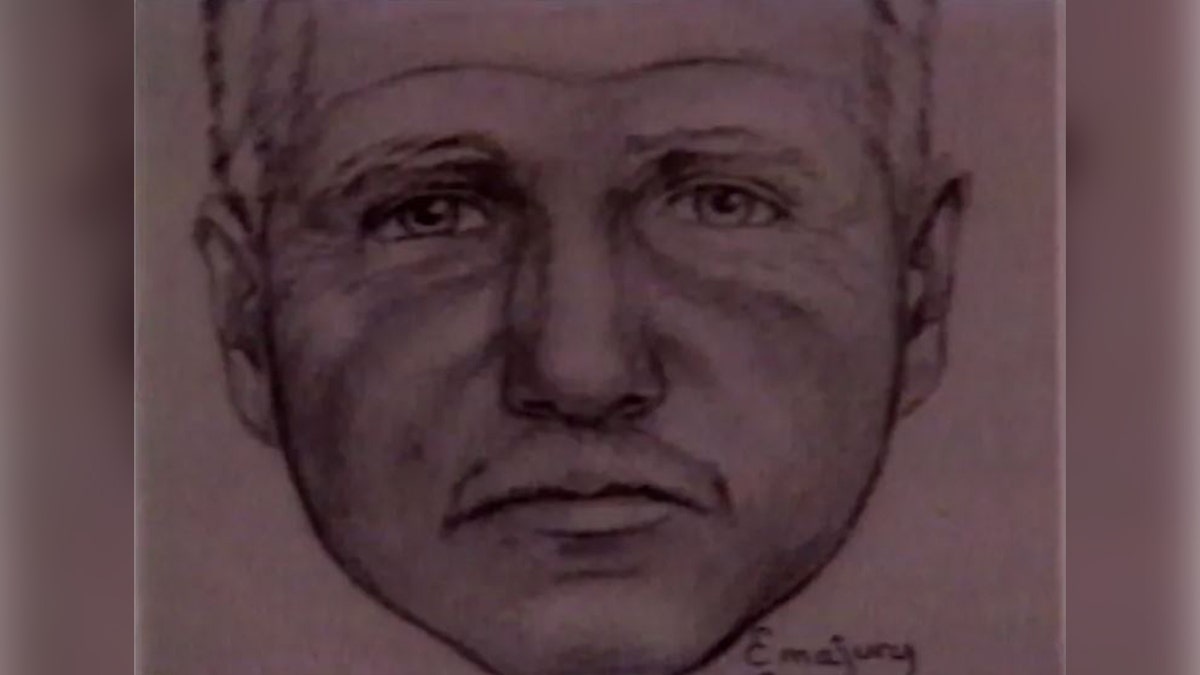
Police distributed this sketch after a Canadian tourist reported that she was raped on a man's blue and white boat – which matched the description written on handwritten directions found in Rogers' abandoned vehicle – by a man who threatened to tape her mouth shut and throw her overboard into the Tampa Bay if she didn't comply. (Fox 13 Tampa)
At the time of the murders, John Rogers was serving time in prison for the alleged rape of another Ohio woman. But detectives determined that there was no way the man could have committed or orchestrated the triple homicide.
But a break came in October 1989 when a Canadian tourist reported that a man had raped her in May of that year, just two weeks before the Rogers family was killed.
The woman told police that a man had approached her in Madeira Beach on May 15 and offered to take her on a boat ride at sunset.
Once they were out on the bay, he asked her for sex – when she tried to refuse, she said, he threatened to tape her mouth shut and toss her into the water.
At some point, she said, the man told her that he lived two hours from Madeira Beach by boat and owned an aluminum siding business.
A composite sketch was drawn up based on the Canadian woman's description and subsequently released to the public – but no viable leads came from it.
In May 1992, detectives posted examples of the handwritten directions to the boat launch on billboards and in newspapers throughout Florida in the hopes that someone would recognize the handwriting – eventually, someone did.
COLD CASES CRACKED IN 2023: UNSOLVED MYSTERIES THAT FOUND RESOLUTION THIS YEAR
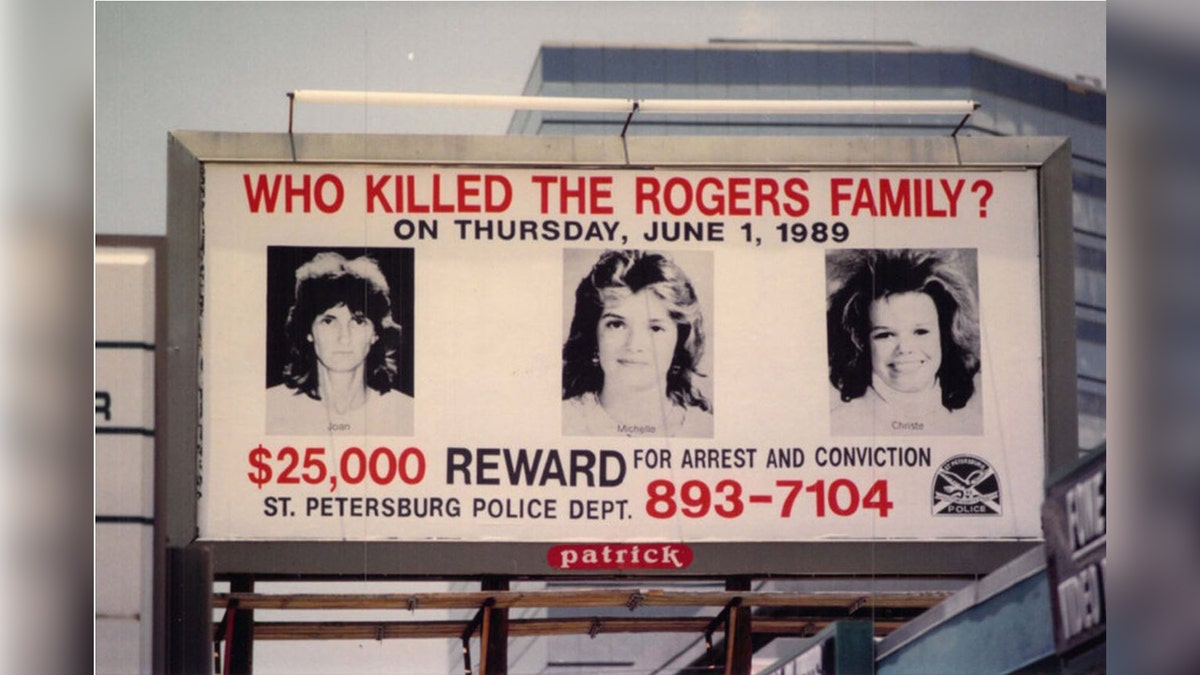
Police posted billboards featuring the victims' faces – in 1992, they started sharing the handwriting sample found in the Rogers' car on billboards and in newspapers. (Associated Press)
Finally, a woman faxed over a copy of a contract written by Oba Chandler, the man who had installed her aluminum enclosures.
Not only did a handwriting expert match the new sample to the directions, but his face was a dead ringer for the composite sketch drafted in 1989. Moreover, police learned, Chandler had been arrested as a juvenile and had felony arrests for rape, robbery and kidnapping in adulthood, per Oxygen.
When police moved to arrest Chandler, they found that he had left town – they managed to track him to a gas station as he returned to the state.
He was charged with the rape of the Canadian tourist while detectives worked to build a case for the June murders.
Chandler's phone records placed him on the water on the night where the Rogers family was killed, which convinced the district attorney to press murder charges along with other circumstantial evidence.
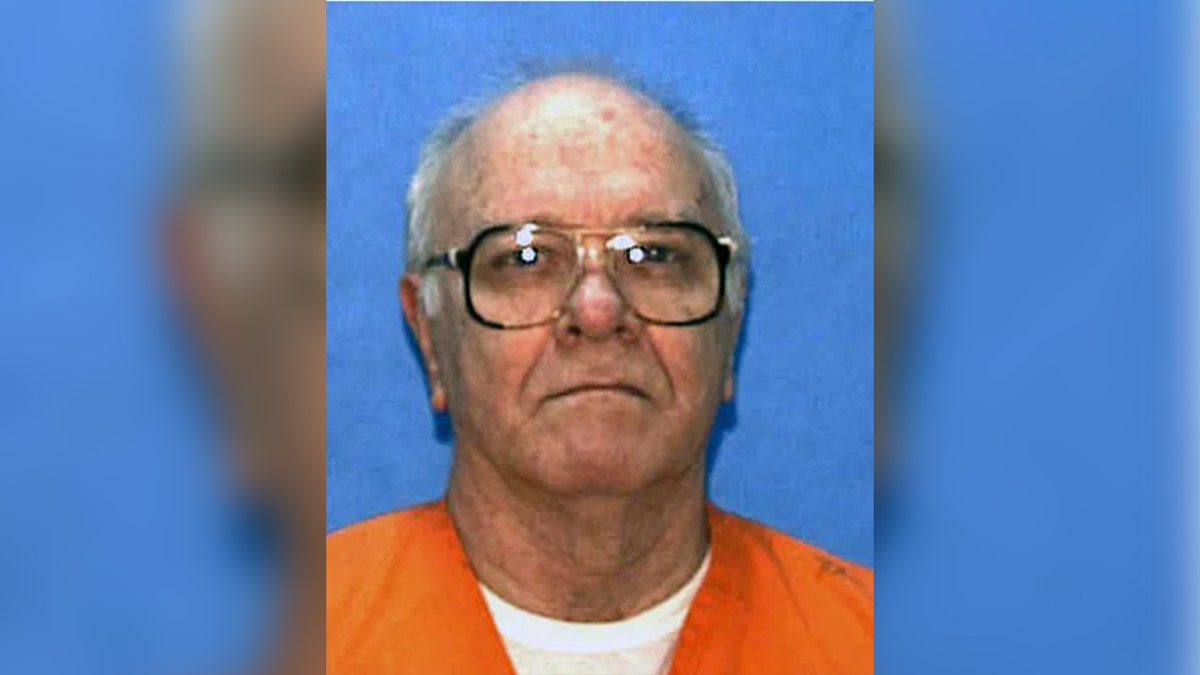
Chandler, pictured soon before his 2011 execution at 65 years old, maintained his innocence until his death. In a handwritten note on his execution day, he wrote that executioners were "killing a [sic] innocent man today." (Associated Press)
Although he would admit on the stand at his 1994 murder trial to meeting the Rogers family and writing out the directions, Chandler maintained his innocence until his death.
"My whole life has been running from the police, starting from 1969 when I was first arrested," Chandler told a Fox 13 reporter when asked in a jailhouse interview why he evaded police. "When I was raised up as a kid, the majority of the time, you wasn't arrested – when you was caught doing something, you get the s--- beaten out of you with sticks by the cops."
"There's no evidence that says I committed this crime," he told the reporter. "None. Where is it at?"
On his execution date in November 2011, at 65 years old, Chandler said he had no last words. Instead, he handed corrections officers a handwritten note, per the Tampa Tribune:
"You are killing a [sic] innocent man today," it read.
FLORIDA MAN ARRESTED AFTER HE ALLEGEDLY ATTEMPTED TO KIDNAP CHILD FROM WALMART: POLICE
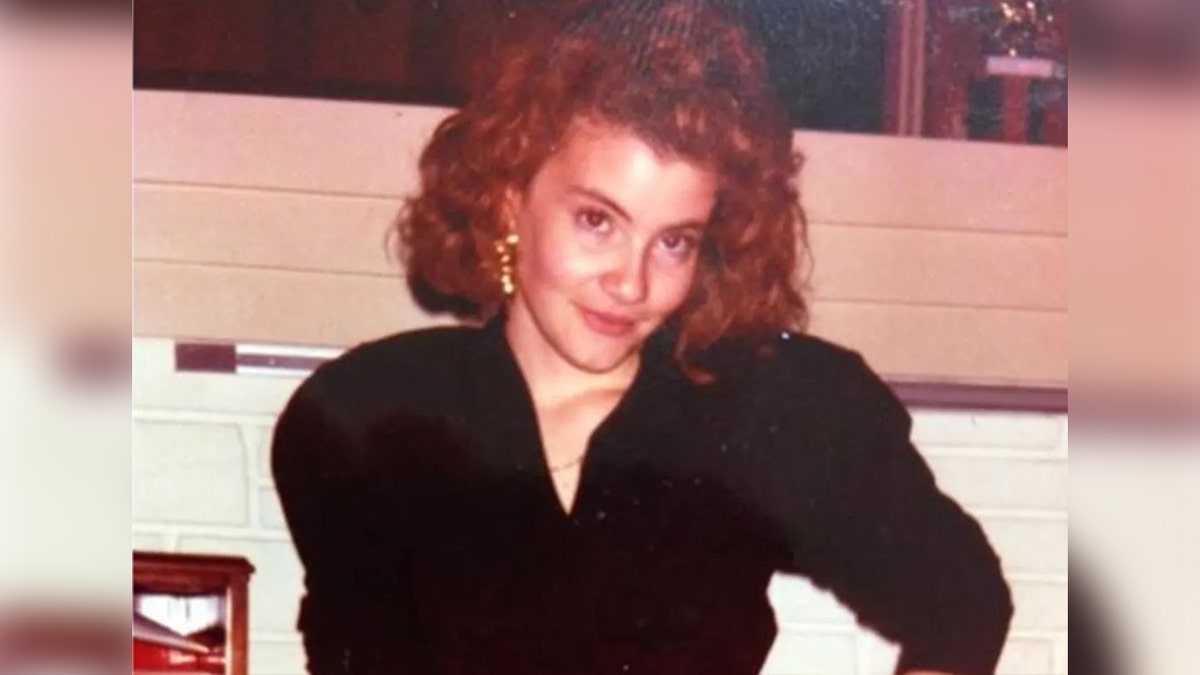
Ivelisse Berrios Beguerisse, 20, was found strangled to death in Coral Springs, Fla., on Nov. 27, 1990. In 2014, the Coral Springs Police Department matched DNA from her post-mortem rape kit to Oba Chandler – but he had been executed three years earlier. (Coral Springs Police Department)
In 2014, Chandler was connected to another woman's unsolved murder: DNA from the post-mortem rape kit of 20-year-old Ivelisse Berrios Beguerisse matched Chandler's, the Coral Springs Police Department announced in February of that year.
Beguerisse's body was recovered hours after her husband called police after finding her car with slashed tires outside her workplace – her wrists and ankles had ligature marks, Fox News Digital previously reported, and brown packing tape was found stuck in her hair.
Department detective Brian Koenig said that the family of Chandler's fourth victim had mixed feelings after the discovery, Fox News Digital reported:
CLICK HERE TO GET THE FOX NEWS APP
"They've got mixed emotions," Koenig said. "Obviously they're grateful for having some kind of closure and knowing more about what happened, but at the same time just to have to revisit it again 23 years later was obviously rough on them."



